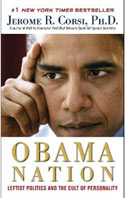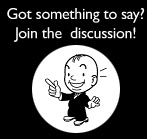It was the day before the primary, and Obama began to improvise a theme, almost too much in the manner of Martin Luther King: “In one day’s time.” It carried him through health care, schools, executive salaries, Iraq—everything that Clinton had invoked, except that this was music. Then came the peroration: “If you know who you are, who you’re fighting for, what your values are, you can afford to reach out to people across the aisle. If you start off with an agreeable manner, you might be able to pick off a few folks, recruit some independents into the fold, recruit even some Republicans into the fold. If you’ve got the votes, you will beat them and do it with a smile on your face.” It was a summons to reasonableness, yet Obama made it sound thrilling. “False hopes? There’s no such thing. This country was built on hope,” he cried. “We don’t need leaders to tell us what we can’t do—we need leaders to inspire us. Some are thinking about our constraints, and others are thinking about limitless possibility.” At times, Obama almost seems to be trying to escape history, presenting himself as the conduit through which people’s yearnings for national transformation can be realized.George Packer, New YorkerObama spoke for only twenty-five minutes and took no questions; he had figured out how to leave an audience at the peak of its emotion, craving more. As he was ending, I walked outside and found five hundred people standing on the sidewalk and the front steps of the opera house, listening to his last words in silence, as if news of victory in the Pacific were coming over the loudspeakers. Within minutes, I couldn’t recall a single thing that he had said, and the speech dissolved into pure feeling, which stayed with me for days.
skip to main |
skip to sidebar




Custom Search
"... a light will shine through that window, a beam of light will come down upon you, you will experience an epiphany ... and you will suddenly realize that you must go to the polls and vote for Obama" - Barack Obama Lebanon, New Hampshire.
January 7, 2008.

 "We are the ones we've been waiting for. We are the change that we seek." - Obama, Super Tuesday |
As Featured In
Blog Archive
Obama Conversion Stories
"We have an amazing story to tell," she said. "This president has brought us out of the dark and into the light."
"Obama is, of course, greater than Jesus."
-- Politiken (Danish newspaper)
"No one saw him coming, and Christians believe God comes at us from strange angles and places we don't expect, like Jesus being born in a manger."
"Many even see in Obama a messiah-like figure, a great soul, and some affectionately call him Mahatma Obama."
"We just like to say his name. We are considering taking it as a mantra."
"A Lightworker -- An Attuned Being with Powerful Luminosity and High-Vibration Integrity who will actually help usher in a New Way of Being"
-- Mark Morford
"What Barack Obama has accomplished is the single most extraordinary event that has occurred in the 232 years of the nation’s political history"
"This was the moment when the rise of the oceans began to slow and our planet began to heal."
-- Barack Obama
"Does it not feel as if some special hand is guiding Obama on his journey, I mean, as he has said, the utter improbability of it all?"
-- Daily Kos
"He communicates God-like energy..."
-- Steve Davis (Charleston, SC)
"Not just an ordinary human being but indeed an Advanced Soul"
-- Commentator @ Chicago Sun Times
"I'll do whatever he says to do. I'll collect paper cups off the ground to make his pathway clear."
-- Halle Berry
"A quantum leap in American consciousness"
"He is not operating on the same plane as ordinary politicians. . . . the agent of transformation in an age of revolution, as a figure uniquely qualified to open the door to the 21st century.""Barack Obama is our collective representation of our purest hopes, our highest visions and our deepest knowings . . . He's our product out of the all-knowing quantum field of intelligence."
"This is bigger than Kennedy. . . . This is the New Testament." | "I felt this thrill going up my leg. I mean, I don't have that too often. No, seriously. It's a dramatic event."
"[Obama is ] creative imagination which coupled with brilliance equals wisdom . . . [He is] the man for this time."
"Obama's finest speeches do not excite. They do not inform. They don't even really inspire. They elevate. . . . He is not the Word made flesh, but the triumph of word over flesh . . . Obama is, at his best, able to call us back to our highest selves."
-- Ezra Klein
"Obama has the capacity to summon heroic forces from the spiritual depths of ordinary citizens and to unleash therefrom a symphonic chorus of unique creative acts whose common purpose is to tame the soul and alleviate the great challenges facing mankind."
"We're here to evolve to a higher plane . . . he is an evolved leader . . . [he] has an ear for eloquence and a Tongue dipped in the Unvarnished Truth."
“I would characterize the Senate race as being a race where Obama was, let’s say, blessed and highly favored. That’s not routine. There’s something else going on. I think that Obama, his election to the Senate, was divinely ordered. . . . I know that that was God’s plan."
-- Bill Rush
Sponsored Ads
Heretics and Unbelievers
- Obama Messiah Watch @ Slate
- Obama's Cocky Messianism", by Christopher Beam. Slate January 6, 2008.
- Barack Obama: The Mania and the Mirage, by Glen Ford. CounterPunch January 19, 2007.
- Dangerous demagoguery, by Thomas Sowell. Jewish World Review January 22, 2008.
- "Name ONE accomplishment by Obama" Hannity & Colmes. February 4, 2008.
- Barack Obama is not Jesus Talking Points Memo February 5, 2008.
- "And Obama Wept", by Jake Tapper. ABC News. February 7, 2008.
- Inspiration vs. Substance, by Joe Klein. Time Magazine February 7, 2008.
- He's Got Obamaphilia Joel Stein. Los Angeles Times February 8, 2008.
- Obama's first coming, by Geff Elliot. The Australian February 9, 2008.
- Obama's Politics of Collective Redemption, by Kyle-Anne Shiver. American Thinker February 11, 2008.
- Death of an Obasm RedState.com February 15, 2008.
- I'm Immune to the Obama Swoon Christine M. Flowers. Philadelphia Daily News February 15, 2008.
- The audacity of hype: Just what else has Obama wrought?, by Charles Krauthammer. Boston Herald February 15, 2008.
- The Totally Coolest Candidate Ever: Can Obama become too hip for his own good?, by John Dickerson. Slate February 15, 2008.
- When the Magic Fades, by David Brooks. New York Times February 19, 2008.
- Delusional Hope: The Obama Rapture, by Joel S. Hirschhorn. Atlantic Free Press February 22, 2008.
- America starts to sober up from a heavy dose of Obamamania, by James Bone. Times [UK] February 25, 2006.
- It’s All About Him, by William Kristol. New York Times February 26, 2008.
- The Ron Paulization of Obama, by Jacob M. Victor. The Harvard Crimson February 27, 2008.
- "Barack Obama and Me": It was the year 2000 and I was a young hungry reporter in Chicago covering a young hungry state legislator, by Todd Spivak. Houston Press February 28, 2008.
- Obama’s Messianic Politics: Why his healer-redeemer rhetoric has a limited appeal, by Michael Knox Beran. National Review March 6, 2008.
- Obama's Messiah Shtick American Thinker March 26, 2008
- The Audacity of Vanity, by Charles Krauthammer. Washington Post July 18, 2008.
- He ventured forth to bring light to the world: The anointed one's pilgrimage to the Holy Land is a miracle in action - and a blessing to all his faithful followers, by Gerard Baker. Times UK. July 25, 2008.

